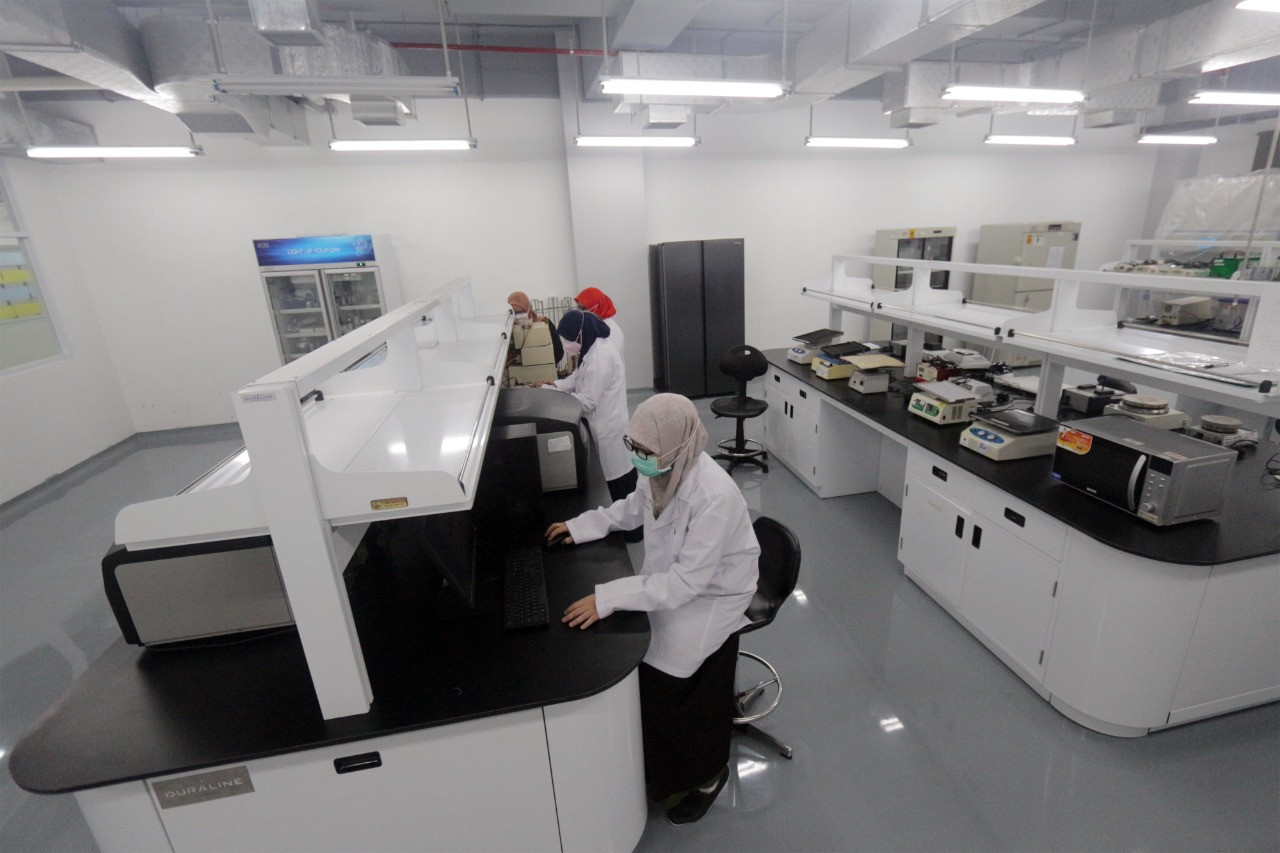Popular Reads
Top Results
Can't find what you're looking for?
View all search resultsPopular Reads
Top Results
Can't find what you're looking for?
View all search resultsDecolonizing research, advancing science and technology
As Indonesia prepares to celebrate Independence Day, perhaps it should take a good look at potential neocolonialism in national research.
Change text size
Gift Premium Articles
to Anyone
A
nother year in our journey of independence has passed. We have every reason to celebrate it with joy, just like every year. Social media is flooded with happy faces, culinary delicacies and natural beauty, all presented in a red-and-white theme.
Yet, one source of dissatisfaction still seems to persist. It concerns the perceived lack of association with the developed world in science and technology.
This year, Indonesia has assumed the prestigious Group of 20 presidency, but one might wonder if the status of being one of the world’s largest economies can be attributed to the level of knowledge in the nation. This refers to the kind of knowledge that should be uniquely present within Indonesian society and determines the significance of the international role the country plays.
One focus, which makes it appear debatable as to whether it has ever been given the appropriate attention, is the government’s policy on research and its closely related higher education. From one political era to another, Indonesia has seen one overhaul followed by another in the organization, management and implementation of policies related to research and higher education institutions.
The most recent one is the establishment of the National Research and Innovation Agency (BRIN) in 2021, an overarching agency tasked with overseeing research activities across the nation. Observing the polemic in the media, BRIN’s establishment has raised controversy.
Almost two years later, the criticisms seem to have grown louder, if not harsher.
One must recognize that many new elements that came with the establishment of BRIN were well intended, such as the introduction of postdoctoral positions. Another example is the new spirit for collaborating with foreign research organizations.
In other nations, the term postdoctoral is common and has been known for decades, such as the postdoctoral research in 1953 that resulted in the breakthrough discovery of the double-helix structure of DNA. In China, the postdoctoral system was founded in 1985 after the Chinese-American Nobel laureate in physics, Tsung-Dao Lee, wrote two letters to the Chinese leadership in 1983 and 1984. He suggested that China establish postdoctoral study centers and develop a sound postdoctoral system.
What needs scrutiny in BRIN’s founding is whether or not the postdoctoral position is academically well integrated. It should have a vision for a tenured (permanent) lecturer to ultimately become a professor, either at the host university or another university. Certainly, Indonesia’s rigid academic career structure also needs an overhaul to realize an impactful postdoctoral position.
Academic mobility across the archipelago should be encouraged and facilitated. This ultimately means that, for example, it should be reasonably possible for a professor to quit her job at a university in Bandung in order to grow her career at a university in Ternate, North Maluku. In doing so, she brings fresh funding to form a new research group, recruiting new doctoral students and postdoctoral scholars from not only Ternate, but also all over the country.
Such a move may be motivated by a desire to pursue new knowledge on a topic that is strongly related to the region of Ternate.
Indeed, research should always begin with a desire, even ambition, stemming from a curiosity to find answers about the unknown. Between curiosity and answers lay questions that must be formulated carefully.
A research proposal describes the route and means necessary to undertake the journey between questions and answers. New knowledge will result on reaching the destination from everything encountered during the journey, including unexpected turns and crossings.
Some of this new knowledge will prompt successive curiosity and new questions, which will eventually lead to another research, and so forth. A professor conducts a symphony of research, acquiring priceless knowledge in a stepwise manner.
A similar phenomenon is commonly found nowadays. However, the professor stays affiliated with his employer, a university in a foreign country, where Indonesian doctoral students and postdoctoral scholars are enrolled to conduct research in Indonesia. Of course, these students and postdocs also gain knowledge and skills from what they do, but these are only piecewise.
The professor who conducts the research gains unique, coherent knowledge based on piecewise findings delivered by his students and postdocs. This knowledge does not trickle down to Indonesian society. Is this a new form of colonialism?
BRIN’s view on international collaboration is rather narrow, stating that Indonesia must deliver equal financial share for equal partnership. I would argue that it is not a matter of who funds the research and for how much. It is a matter of who takes the initiative in formulating the research questions, drawing the routes and determining the required means.
Foreign entities may participate by any means and by any amount, but the party that formulates the research questions is the one that controls the research and therefore, gains the knowledge in a coherent manner. Indonesian academics must be empowered to assume this responsibility.
Indonesia is a vast land and sea, rich with unknowns to be unraveled and transformed into tradable knowledge. The interaction between the disadvantaged weak and the privileged powerful in the 21st century is not about nutmeg or other spices like in the 17th century, but about unique knowledge that can be traded to ensure the national standard of living.
With climate change becoming a harder boundary, where the survival of humanity itself is at stake, decolonizing research is vital to precluding another form of colonialism from taking shape, in which one dominates another based on knowledge.
This is another kind of independence that we must still fight for.
***
The author is a senior scientist who resides in Leiden, the Netherlands.










